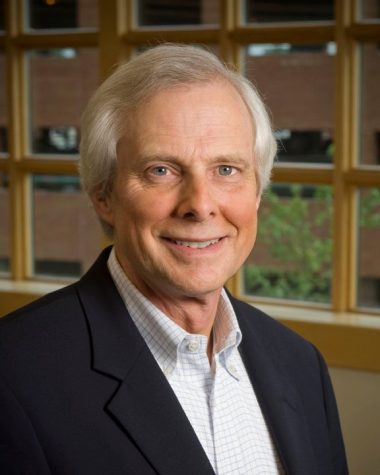In a chapter of the book Coaching for Leadership, Elon Law’s Distinguished Leadership Coach-in-Residence offers insights from his work with law students participating in the school’s Leadership Program.

Coaching for Leadership, third edition, includes “writings on leadership from the world’s greatest coaches.” Alexander served as President and CEO of the Center for Creative Leadership (CCL) from 1997-2007. During his tenure, CCL was consistently ranked among the world’s top providers of non-degree executive education.
In his chapter of Coaching for Leadership, Alexander describes Elon Law’s Leadership Program, explains the role of coaches in the program, and explores themes of student learning and reaction to the program.
Of law students in the first-year course of the Leadership Program, Alexander writes, “A number of them express interest in international service, such as helping to stop human trafficking or serving the legal needs of recent immigrant populations.”
Describing why Elon Law is investing in leadership development for its students on a broad scale, Alexander writes:
“First, because the school’s founders view leadership as an indispensible duty of lawyers in a democratic society. Second, because a whole constellation of stakeholders—including law firms, bar associations, corporations, public interest groups, and clients—are calling for a different kind of lawyer, one who combines leadership qualities with technical competence. And finally, because recent studies of legal education, most notably a major report by the Carnegie Foundation for the Advancement of Teaching and Learning have challenged law schools to complement their traditional reliance on case analysis with what the Carnegie report calls ‘developing the ethical and social dimensions of the profession.’ A program of leadership development is in part Elon Law’s response to this call for pedagogical reform. And Elon Law is not the only pioneer. Several other law schools have embarked on a similar path, though features such as required leadership courses and one-on-one coaching are rare, if not unique, at this writing.”
Before joining the CCL staff in 1990, Alexander pursued a career in newspaper journalism, during which he was a finalist for the Pulitzer Prize in Editorial Writing. From 2007-2009, he was appointed as Elon University’s Isabella Cannon Distinguished Visiting Professor of Leadership. In this capacity he worked primarily with the law school to help design a new leadership curriculum in the context of legal education. In 2009 he joined the law school faculty and is part of a faculty team for two leadership courses: Lawyering, Leadership, and Professionalism and Leadership and Public Law. He oversees a coaching initiative for students in each of those courses. Alexander also serves as faculty advisor for the school’s Leadership Fellows program.
Alexander is a member of the Council on Foreign Relations. He graduated from Princeton University with Highest Honors and earned an M.A. in Politics, Philosophy, and Economics from Magdalen College, Oxford, as a Rhodes Scholar.
Coaching for Leadership, third edition, was published by Pfeiffer and edited by Marshall Goldsmith, Laurence Lyons and Sarah McArthur.


